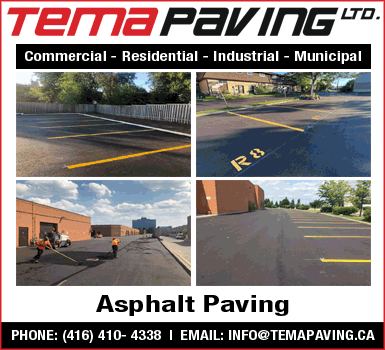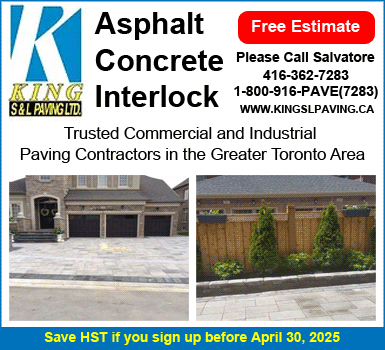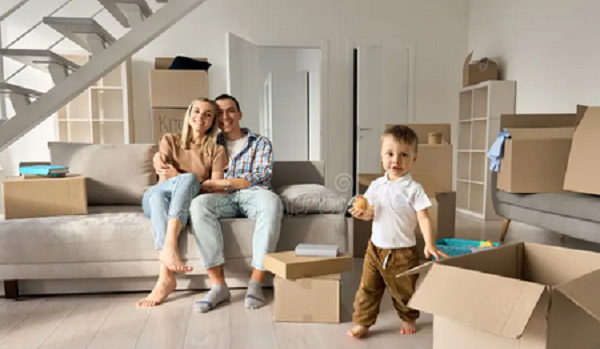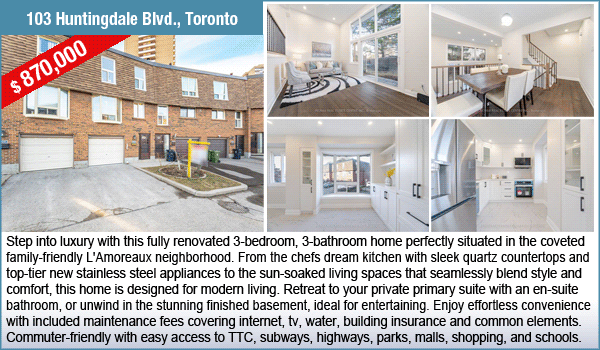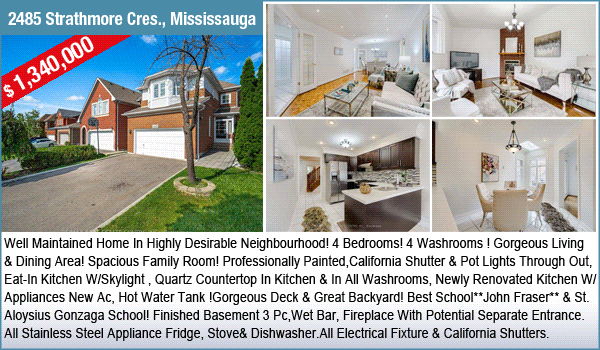First-time home buyers considering the traditional home ownership ladder as they perceive starter homes are not worth it anymore
When Bryan Blue and Maggie McTavish began searching for their first home in St. Catharines, Ont., in 2023, they considered starter homes – small, affordable properties without amenities such as a two-car garage, multiple bathrooms or a spacious yard.
But the starter homes they toured, priced between $400,000 and $650,000, were highly competitive, with packed open houses and bidding wars. Meanwhile, some slightly more expensive homes lingered on the market.
Sensing an opportunity, Ms. McTavish, who runs a web design and search engine optimization agency, and Mr. Blue, a consultant, decided to bypass the traditional starter-home route. “We realized the next level up wasn’t an unattainable difference,” he says.
Their eventual purchase – an 1,800-square-foot mid-century modern bungalow – offered five bedrooms, three baths and a walkout basement leading to a ravine yard backing onto a creek. The home, an estate sale, wasn’t staged but the couple saw its potential. Initially listed for $938,000, they got it for less than $800,000 after a price drop.
They took possession in November, 2023, and a few months later, welcomed their daughter. Looking back, Ms. McTavish is confident they made the right choice. “We don’t plan on moving again,” she says. “For us, it was worth the stretch.”
For decades, starter homes were the building block of Canadian home ownership. First-time buyers typically followed a simple cycle: buy a small home, build equity as prices rise and then sell after five years to move up. Repeat if necessary.
This approach worked well throughout the frothy heyday of Canadian real estate in the 2000s. Someone who bought a home in 2012 for $368,000 (the national average then, according to the Canadian Real Estate Association) could have sold it for $513,000 five years later, using the gain to move up. First-time buyers in 2017 saw even greater returns – selling that $513,000 home for $709,000 by 2022, a nearly $200,000 jump.
But since the 2022 COVID-19 peak, home prices in Canada have softened. Today’s first-time buyers can no longer assume rapid appreciation will provide the equity needed for their next move.
This shift is already affecting homeowners. A 2024 report by Mortgage Professionals Canada found 18 per cent of Canadians plan to sell their primary residence within five years – only about half as many as a year earlier (35 per cent).
That suggests “more first-time owners intend to stay in their home longer,” says MPC president and chief executive officer Lauren van den Berg, citing economic concerns and rising living costs. “People are less likely to be looking to move in periods of uncertainty,” she says.
Mustafa Abbasi, president and chief operating officer of digital real estate brokerage Zolo.ca, says Canadians typically move every seven to 10 years. But speaking with realtors and clients, he’s hearing more homeowners are deciding to stay put – a big shift from just a few years ago.
“During COVID, when the real estate market was at its peak, people were looking to upgrade,” he says. “Interest rates were low, and people were willing to take on more risk. Now they’re saying, ‘Maybe I’ll just stay in this property for longer or maybe this might be my forever home.’ ”
With fewer guarantees of quick equity gains, many Canadians may start rethinking the traditional home ownership ladder.
A big reason is the high cost of moving. If you bought your first home five years ago for $600,000 and sold it for $700,000 now, you might think you have $100,000 to put toward your next house. But a 5-per-cent real estate commission takes $35,000 plus sales tax, and when you move up to a bigger, nicer home – let’s say it’s $850,000 – you’ll pay a hefty land transfer tax.
In Ontario, that would be $14,000; in Toronto, it’s double that. Add legal fees, moving costs and other expenses, and your equity gain shrinks fast – assuming there’s any equity at all, given today’s bearish housing market.
Also, don’t expect to find much wiggle room from paying off your mortgage. On a $600,000 home with 20 per cent down and a 30-year amortization, you’d have paid off only about $46,000 in principal after five years. Most of your monthly payments went to interest.
Many people overlook these costs when they move, says Tuli Parubets, a Toronto mortgage agent. With lower home prices now and interest rates lower than they were, it makes sense for first-time buyers to look for a home they can stay in for the long term. “Ask yourself what your end goal is,” she advises. “If you can achieve that now and avoid selling in a few years, it may be worth it.”
Alex Crupi applied this logic when he and his wife, who were recently married, bought their first home in Toronto. Mr. Crupi, who works in finance, says they initially considered starter homes but realized that moving would be overly expensive in a city where even starter homes begin at more than $1-million and anything with more space and features is $1.3-million to $1.5-million, at least.
Mr. Crupi crunched the numbers and found that to sell one house at $1.2-million and then pay Toronto’s double-priced land transfer tax to buy a $1.5-million home would cost them more than $110,000 in real estate commissions, closing costs and land transfer tax.
The land transfer tax is a tax, and it doesn’t go into the value of your home, he says. “It’s a major expense you can’t amortize over 30 years. If we bought a house and sold it in three to five years, it wouldn’t be worth it.”
So, what should first-time home buyers look out for if seeking a forever home rather than a starter home?
First, be patient. Mr. Crupi and his wife toured about 40 homes and lost three bidding wars before finding the right one. “What we wanted changed a lot as we began looking at houses,” he says.
They settled on a three-bedroom 1950s bungalow in Toronto’s western suburbs on a 60-by-125-foot lot, which allows for an addition should they need more room. Mr. Crupi estimates the couple paid $250,000 more than they would have for one of the starters they looked at.
Next, think ahead 10 or 20 years. Will you have kids? Look for homes in good school districts – not just for elementary school but for high school, says Zolo’s Mr. Abbasi. Do you expect your elderly parents to move in with you eventually? “Find a house with more space than you need now,” he advises, noting that many buyers later regret choosing a too-small home.
Affordability is another key consideration – especially for monthly payments, says Marshall Tully, a Toronto mortgage broker. A general affordability rule: Every $100,000 in mortgage debt costs about $500 a month at current rates. With a 20-per-cent down payment, most buyers can afford a home priced at about five times their income. And expect to spend about 1 per cent of your home’s value on repairs and upkeep each year.
When house hunting, don’t limit yourself to homes within your exact budget. Mr. Blue and Ms. McTavish toured a range of properties, from budget-friendly starter homes to high-end listings, to gauge value. “It gave us perspective on what we could get – and whether an expensive home was really that much better,” Mr. Blue says.
Also, consider the neighbourhood. Can you see yourself living there long-term? And pay attention to the home’s layout, Ms. McTavish says. “That’s not something you can easily change,” so you’ll have to love it.
As for renovations, one advantage of a “forever home” is that there’s no rush to make it perfect. When Mr. Blue and Ms. McTavish moved in, most of the house was original to its 1960s construction. They tackled small updates first – replacing mint-green carpets with hardwood and repainting the equally minty walls with warmer, brighter whites. Bigger projects, such as updating the vintage yellow tub and sink in one bathroom, can wait. The benefit? Since they don’t plan to move, they’ll get the full value of any improvements rather than renovating for the next buyer.
In other words, instead of treating their house as a short-term investment, they’re enjoying it for what it was meant to be all along: a home.
This article was first reported by The Globe and Mail



